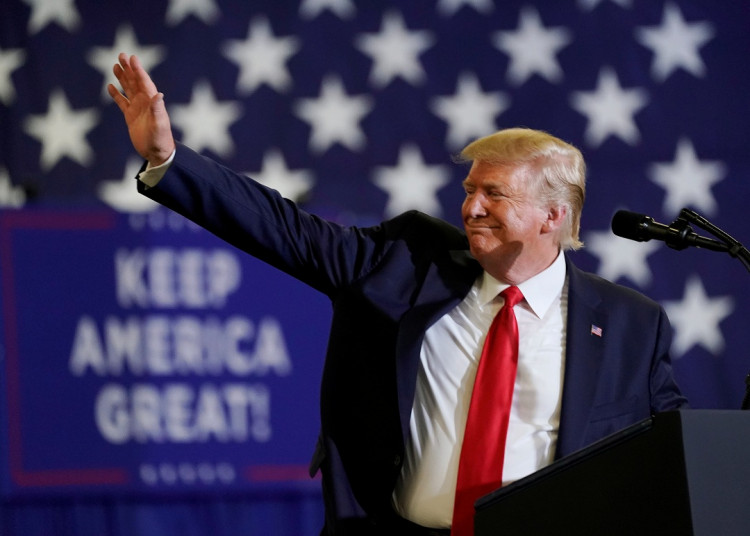The Trump administration has set into motion a process that will bar Chinese companies from listing on Wall Street despite a leading administration official denying it's done so.
It issued a policy memo last week explaining the reasons why potential investment limits on U.S. investments into China's stock markets have to be studied, according to CNBC. The memo doesn't make a policy recommendation but will likely lead to one in the future.
The Trump administration will schedule a meeting of its Policy Coordinating Committee (PCC) whose members belong to relevant government agencies and the White House. PCC is slated to hold a follow-up meeting the week of Sept. 30 to Oct. 4 to evaluate what, if any, restrictions on Chinese investment it might pursue.
A senior White House official told media this process might last anywhere from a few weeks to more than a year. The pace depends on whether President Donald Trump expedites the process for political gain.
White House sources said a ban on U.S. investments in Chinese firms is supposed to protect U.S. investors from excessive risk due to the absence of strong regulatory protections in China.
Despite media reports to the contrary, the Trump administration through the Treasury Department said it "is not contemplating blocking Chinese companies from listing shares on U.S. stock exchanges at this time."
One analyst noted the key phrase in this statement is "at this time," which is being taken to mean such restrictions are still possible in the future.
White House trade advisor Peter Navarro, the architect of Trump's trade war against China, on Monday, called media stories about this proposed ban on Chinese investments "fake news."
Republicans in the Senate, however, seem to support restricting Chinese investments in U.S. firms. Sen. Marco Rubio (R-TX), who is known for his anti-China views, has spearheaded bills that will impose stricter disclosure rules on Chinese companies listed in the U.S. and ban U.S. government retirement plans from investing in Chinese stocks.
It was reported over the weekend the Trump administration intends to delist Chinese companies from U.S. stock exchanges. This blow is seen as part of a broader effort by the Trump administration to limit U.S. investment in Chinese companies in order to place more pressure on China during the Oct. 10 to 11 talks.
Chinese Vice Premier Liu He, an economist, will lead the Chinese delegation to the trade talks. His fields of expertise include macroeconomics, industrial structure, new economic theory, and information technology.
On Sept. 25, Trump claimed Chinese leaders "want to make a deal very badly. And it could happen.... It could happen sooner than you think."






